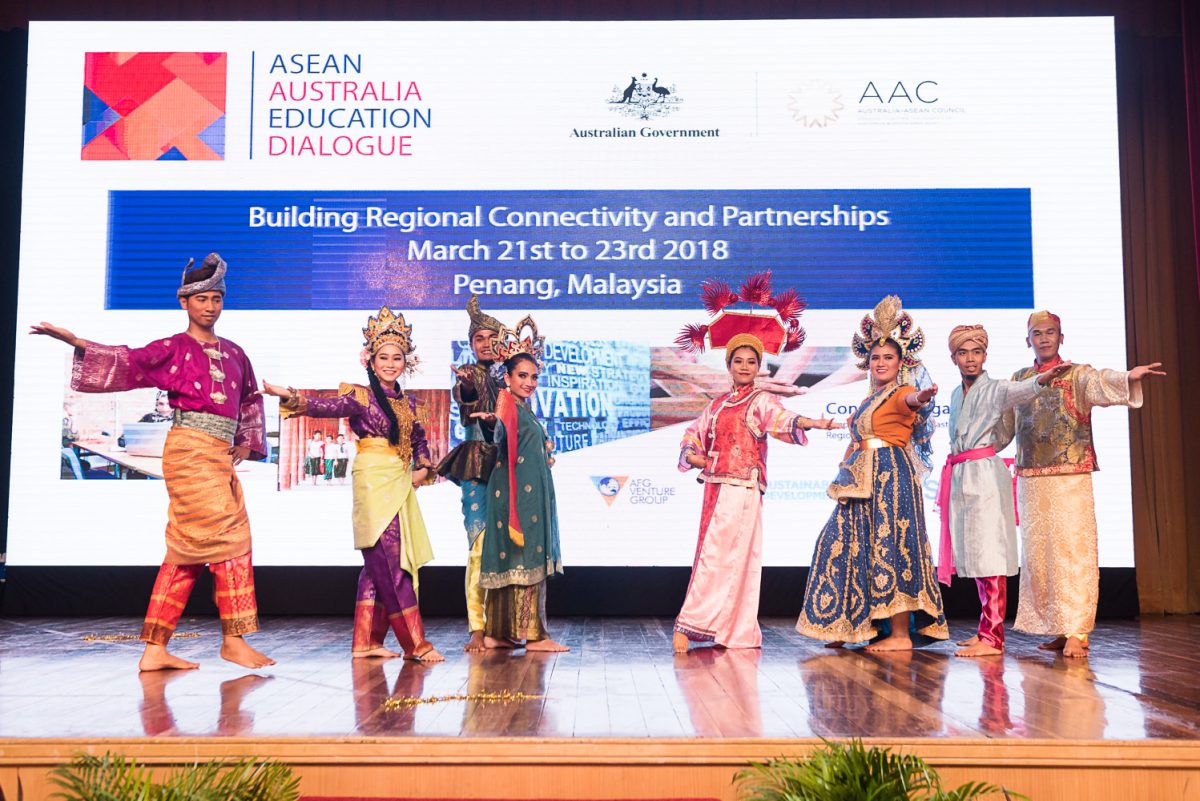Offshore branch campuses and in-country delivery will produce the most significant opportunities for providers to access more students, according to Michael Fay, director of the ASEAN Focus Group. But while there are opportunities, further work is needed on qualification recognition, facilities and English language adoption.

Australian businesses must invest further into the ASEAN region, says Fay. Photo: ASEAN Focus Group
Speaking with The PIE News as part of the ASEAN-Australia Education Dialogue in Penang, Malaysia, Fay said foreign providers should set their sights on assisting ASEAN countries as they start to position themselves as destination markets and look to better educate their students.
“Australian companies don’t seem to trust potential partners in ASEAN as much as companies from other OECD countries do”
“If you look at the numbers of students from a country like Indonesia with 260 million people, the number of students coming to Australia… is minute,” he said.
“The market is in-country, it’s not in Australia for a country like Indonesia.”
Fay highlighted the increasing need for ELT within the region, with each of the ten ASEAN member countries having a different native language and inconsistent second language due to colonial influences.
“A developing country, with an emerging middle-class, values English language skills as a pathway to further education,” he explained.
“Vietnam has come from a background of French as a second language, and it isn’t going to get them too far, so the parents are enthusiastically adopting English language taught at high standards.”
Executive director of state-funded think tank Penang Institute, Ooi Kee Beng agreed with Fay’s comments, observing that “English is the language of globalisation”.
“It is the language in which a lot of new knowledge is transmitted,” he said.
“The market is in-country, it’s not in Australia”
“Mastering English does not make a child less able to use his or her mother tongue, but not mastering English will certainly hamper his educational development and make much new knowledge inaccessible to him or her.”
While there are opportunities for growth, Fay said Australia had work to do, especially within the mutual recognition of qualifications and quality assurance field, which of late has seen ELT assuror NEAS increasing its role in guiding providers in the region.
“What we believe ASEAN can do in conversation with organisations with NEAS and drawing on the Australian experience is work towards common requirements,” Fay said.
“Having an agreement where Australian qualified teachers and Indonesian qualified teachers have got the same qualifications means that it’s then possible for Australian campuses or schools [to invest].”
Currently, teachers must have qualifications in literature or linguistics to teach English in Indonesia, he added.
The dialogue, which focussed on Australia’s relationship with ASEAN – Australia is only part of the ASEAN+Six Economic Partnership – also explored how education could lead to broader economic benefits.
“The inefficiencies of traditional schooling are becoming unbearably obvious to those parents”
Former Australian ambassador to Thailand James Wise criticised current levels of investment by Australian businesses into ASEAN countries, saying it showed a lack of trust, but implored education providers to help build pathways for economic collaboration.
“Although there are some very notable exceptions, as a rule, Australian companies don’t seem to trust potential partners in ASEAN as much as companies from other OECD countries do,” he told delegates.
“No sector is doing more to lift Australian confidence levels, and no sector can do more, than the education sector.
“This is why your sector is critical to the longer-term health of the Australia-ASEAN relationship.”
But while traditional education was a focus, the Penang Institute’s Beng was less enthusiastic about conventional models of education, noting that many ASEAN governments had chosen to focus their time on other matters.
“Changes… will largely come from outside the traditional system. We do see such trends already, and the inefficiencies of traditional schooling are becoming unbearably obvious to those parents who are knowledgeable enough to see them.”
Countries are increasingly setting their sights on ASEAN – which consists of Brunei, Cambodia, Indonesia, Laos, Malaysia, Myanmar, Philippines, Singapore, Thailand and Vietnam – to increase collaboration, with the British Council’s Going Global conference held in the region in May 2018.
An earlier report from the British Council also noted the region was “open for engagement”.

